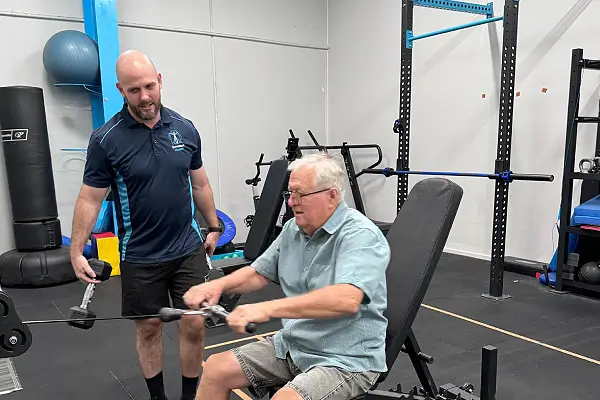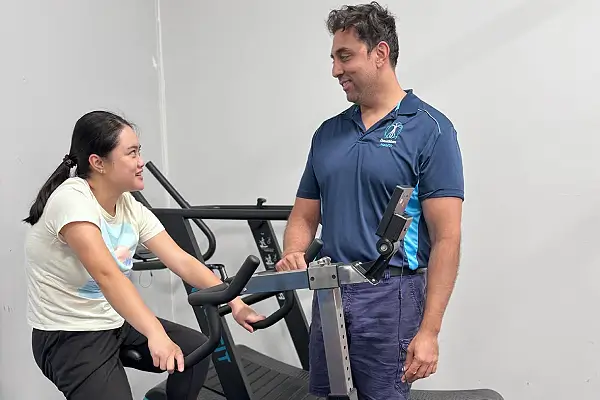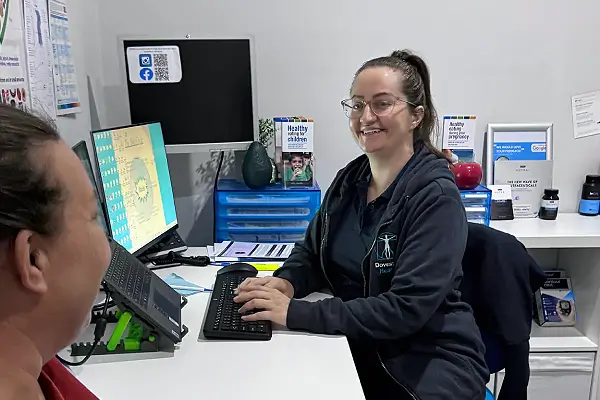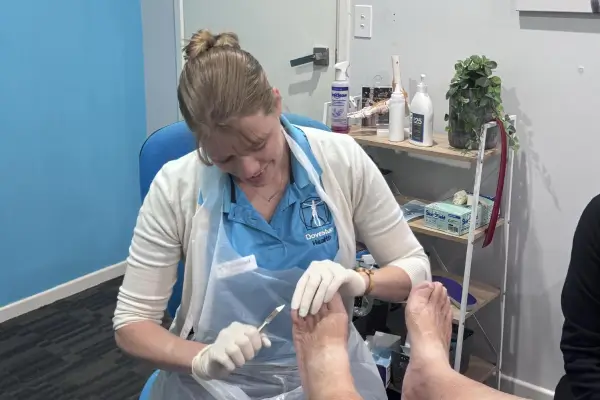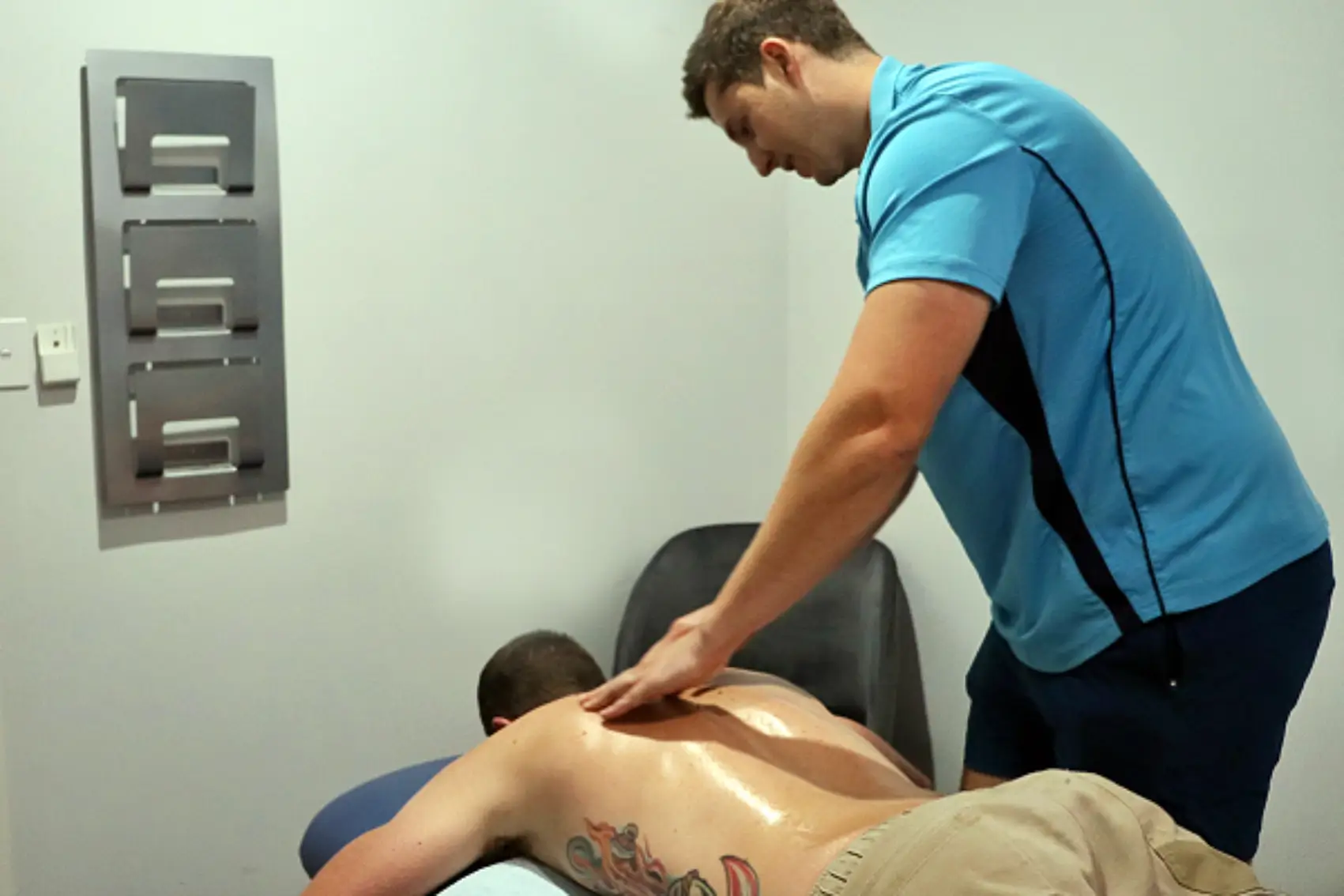What is the NDIS?
The National Disability Insurance Scheme, or NDIS is run by the National Disability Insurance Agency, or NDIA.
The NDIS is one component of the National Disability Strategy which brings community, government and industry together to address the challenges faced by people with disability, and ensures they are supported by mainstream services such as health, education and transport and the wider community.
The aim of the NDIS is simple: To provide Australians who are born with or acquire a permanent and significant disability with the reasonable and necessary supports they need to live and enjoy an ordinary life.
The NDIS & You
Your NDIS plan is created to help you meet your goals, and is unique to you. Every person living with a disability has different needs, and the NDIS is here to support you to achieve your goals.
Getting Ready for the NDIS
There are five simple steps you can take to get ready for the NDIS:
- Find out when the NDIS is coming to you. Each State or Territory has different roll out schedules. You can find the details at ndis.gov.au
- Learn if you might be able to access the NDIS. Accessing the NDIS depends on your age, residency and disability.
- Think about your life now, your current informal and formal supports, and what is working and what might need to change. Informal supports are the care and help you get from your family and friends. Formal supports are supports you might pay for or get through a program.
- Identify your strengths, interests and challenges. Consider your goals and what you might like to achieve.
- Write these things down and collect any reports, assessments or information you might find helpful for when the NDIS comes to you.
My NDIS Pathway
When you are eligible for NDIS support, you are called a participant. This video will help you understand the path you will travel as the NDIS works with you. It will provide an overview of what to expect at each stage. It’s important to understand how the NDIS works and whether you are eligible to participate.
So, What is the NDIS?
The NDIS is a new way of providing disability support. It takes a lifetime approach, investing in people with disability. The NDIS supports people with disability to build skills and capability so they can participate in the community and employment.
You can access the NDIS depending on your age, residency and disability. You need to be under 65 years of age, live in Australia and be an Australian citizen, or have paperwork that gives you permission to live here permanently. Your disability needs to be likely to be with you for life and substantially impact how you manage everyday activities.
Your first step once you access the NDIS is to create your first plan. Your first plan is the start of a lifelong relationship with the NDIS. It will continue to give you the support you need now. It will make sure you have time to learn more about all of your options with the NDIS. Your first plan will give you time to think about what you might need to help you achieve your goals before you do your next plan.
Your plan may include informal supports – the care and help you get from your family and friends. Community supports – the activities and services you can get from people or groups in your local community. Mainstream supports – the support and services you get from people like doctors and teachers. Reasonable and necessary funded supports – the supports and services the NDIS can fund.
Your first plan will be in place for 12 months. This will give you time to think about how those supports are working for you. Once your plan is approved, it is time to put it into action. The NDIS can work with you to help you start your plan.
With the NDIS, you can self-direct your plan. Self-direction means you have control over your supports and how they are provided, including payments to your providers. You can choose the providers you want to deliver the services you need. Your existing provider may need to continue to deliver some supports initially.
You will normally need to make a written agreement with your providers. You can access your plan on the Participant Portal, an online tool available through the myGov website that keeps all of your documents together. While you are starting your plan, you might like to think about your future goals and consider activities and ways of achieving them.
While everyone is different, your first plan will generally be in place for 12 months before we work with you to make any changes. This is called a plan review. To get ready for making your next NDIS plan at your plan review, think about your life now, including which supports are helping you and which are not.
Identify your strengths, interests, opportunities and challenges. Consider your current informal, mainstream, funded and community supports. Think about your goals and what you want to achieve Write this down so that you are prepared for your plan review.
The NDIS will support you throughout your life for as long as you need it, so this pathway will continue on, and you’ll update your plan as your needs change.
Developing your first NDIS Plan
You may have a few questions about developing your first plan. We understand that every person living with a disability has different needs, and we’re here to help you develop a plan that you have choice and control over. Watch this video for more information on developing your first plan.
Starting your first NDIS Plan
Once your NDIS plan is approved, it’s time to put it into action. Depending on your situation, there are a range of people who can help you start your plan and help you to begin receiving supports. You can start your plan by yourself if you choose to self-manage your plan, or with the support of a local area coordinator, support coordinator, or an early childhood partner. While you may work with different people to get you started, there are a few activities you can do either by yourself, with a family member, friend, or carer before you put your plan into action. Read and understand your plan.
Register online for myGov and link to the NDIS participant portal.
Connect with the person who will help you implement your plan. On our the NDIS website (www.ndis.gov.au), you can also find checklists to help you get started with community, mainstream, and funded supports that will help you get the most out of your NDIS plan.
Remember, your first plan is the start of a lifelong relationship with the NDIS. You will have opportunities to review and revise your plan over time, and you have control over the supports and services you receive and flexibility to manage your budget.
Early Childhood – Early Intervention
If your child is aged zero to six and has a developmental delay or disability they may be able to receive support from the NDIS. Your child’s early years are very important as they set up how they’ll learn and develop later in life. Support provided early will give your child the best chance of achieving their potential.
So how does the early childhood early intervention approach work? You will be connected with an early childhood partner to discuss the concerns you have about your child’s development. Your early childhood partner will provide you with some information to help you understand and determine your child’s support needs. They will also help you work out what supports and services in your community your child might need to achieve their goals.
Your early childhood partner will provide information and linkages to supports and services in your local community. They may also provide initial early childhood intervention supports if your child needs them. If your child will be best supported with an NDIS plan, your early childhood partner will work with you to request NDIS access. Your child’s progress will be monitored against their goals.
Your early childhood partner and service providers will work with you towards supporting your child’s participation in everyday activities. It’s important to remember your child’s journey might be different to other children, depending on their individual needs and circumstances.
Providing quality intervention early in your child’s life reduces the possible need for longer-term intervention and will support them towards leading an ordinary life.
Reasonable and Necessary Supports
If you have a disability that is likely to be permanent and significant you can receive funding from the NDIS. The NDIS funds reasonable and necessary supports to help you reach your goals and aspirations, and take part in activities to increase your social and economic participation.
What is a permanent and significant disability?
A permanent disability means it is likely to be with you for life. A significant disability affects your ability to take part in everyday activities. To receive funding from the NDIS, your disability must be both permanent and significant.
What kind of supports does the NDIS fund?
The NDIS funds reasonable and necessary supports. Reasonable and necessary supports are those that will help you pursue your goals and aspirations be more independent take part in social activities and work actively take part in the community enjoy an ordinary life These supports are related to your disability and don’t include day-to-day living costs not related to your disability support needs represent value for money are likely to be effective and work for you take into account informal supports given to you by your family, carers, networks, and the community, and take into account other formal supports you have like health and education services.
What types of supports don’t need to be funded by the NDIS?
Some supports are funded by other areas of government including school teacher aides and hospital and GP visits. What types of supports are funded by the NDIS? The types of supports the NDIS may fund include help with personal care activities transport to help you participate in community, social, economic and daily life activities help at work to allow you to successfully get or keep a job therapeutic supports like occupational therapy, speech therapy and behaviour support help with household jobs to allow you to maintain your home aids or equipment to help you do things more independently, including assessment, set up and training home modifications, including design and construction, to help you live at home mobility equipment to help you get about more easily, and vehicle modifications to your car to make it easier to use.
You have choice and control over how your supports are given and which service providers you use in your plan.
What supports are NOT funded by the NDIS?
A support won’t be funded if it isn’t related to your disability is the same as supports already funded by other areas of government relates to day-to-day living costs that are not related to your disability support needs is likely to cause you harm or pose a risk to others.


